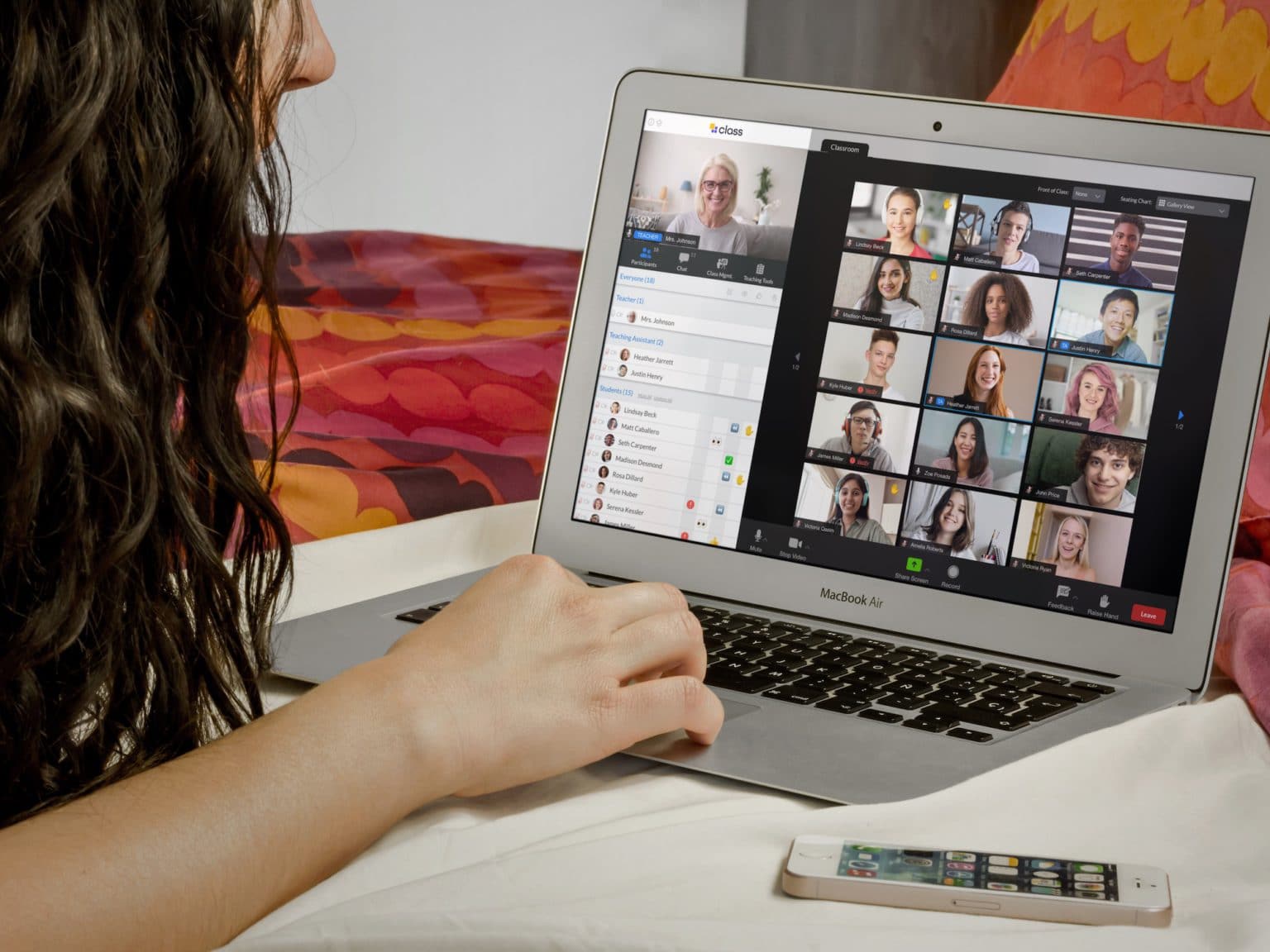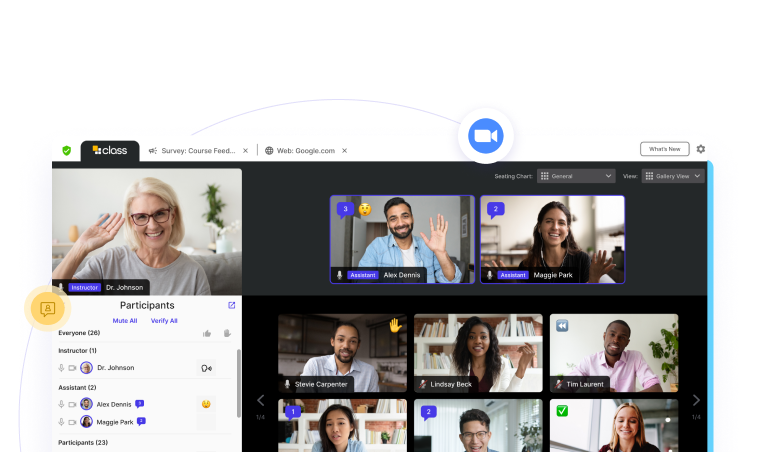
Class is the next generation virtual classroom for K-12, higher education, government agencies, and the workplace. Contact us today to schedule your live demo and see Class in action.

Class is the next generation virtual classroom for K-12, higher education, government agencies, and the workplace. Contact us today to schedule your live demo and see Class in action.

With many school systems operating remotely, or in some hybrid learning format, it’s more important than ever to stay student-centered. Student-centered teaching is also more challenging than ever. School systems, teachers, administrators, parents and students learned a lot during the pandemic about what works –and what doesn’t — in a digital learning environment. Those lessons will serve them well as we all look to 2021 and consider new, as well as tried and true ways of staying student-centered to keep students engaged and ensure effective learning.
Student-centered learning theory was originally championed by clinical psychologist Jean Piaget. It’s an approach to learning that puts learners in the driver’s seat, allowing them to choose what and how to study and what topics may be of most interest to them.
“Teachers encourage student-centered learning by allowing students to share in decisions, believing in their capacity to lead, and remembering how it feels to lead,” says John McCarthy in an article for Edutopia.
Learning doesn’t just take place in the classroom, of course. Exposing students to a wide range of experiences can be a good way to help them identify topics and issues that appeal to them in an experiential way. Importantly, these events can—and increasingly are—occurring in a virtual classroom format.
“The current disruption in the school system has made it even more evident the need to shift from adult-lead traditional learning to student-centered learning founded on metacognition,” says Lindsey Wander, founder and CEO of WorldWise Tutoring LLC.
“It is clear that students need more opportunities to develop personalized essential skills such as time management, self-assessment, accountability, and the like, along with the freedom to explore personal interests, think critically, creatively problem-solve, and innovate,” Wander says.
Fortunately, teachers and administrators are learning that, even in the midst of the pandemic, while many school systems are teaching with remote or blended classrooms, technology offers some valuable opportunities to engage students.

At Futuro Academy, a public charter school located in Las Vegas, events have traditionally been a strategy to drive student engagement and stay student-centered, says executive director Ignacio Prado. The school is committed to programming, he says.
In a typical year, Futuro Academy has two major carnival events and three field trips per class. Students, says Prado, “are always looking forward to some fun and celebrations.” These events, he says, “help students stay centered, focused and engaged.”
COVID-19 has caused such in-person events to be canceled. That doesn’t mean that their commitment to student-centered teaching has to be eliminated though. “With cancellations of in-person events due to COVID, we wanted to find a way to still make these occasions happen and give students something to be about,” says Prado. “We’ve held two very successful virtual school-wide events, and gone on some virtual field trips, but they have come together hastily as we’ve adapted to virtual school.”
Looking forward to 2021, Prado says, the school has made a commitment to increase programming to have events every month and is adding new events like a Futuro Talent Show and Nevada Wellness Week. “We are committed to making these happen in whatever format COVID will allow,” Prado says. “This ensures students are always celebrating and have something to look forward to on our calendar. It was critical to our staff to adapt to teaching and learning in the virtual teaching model, that we recommit to the joy factor in robust and meaningful ways as our New Year’s resolution.”
Wander feels that many children today could benefit from greater opportunities to develop personalized essential skills like time management, self-assessment, accountability, etc. In addition, she says, students need “the freedom to explore personal interests, to think critically, to creatively problem solve and to innovate.”
As a society, we have not been raising our youth to be confident and independent learners, says Wander. “Children nowadays rely too heavily on the adults in their lives to get them organized, motivated, and engaged. During remote learning, most parents have been dealing with the daily complaint of ‘I’m bored,’ which indicates a severe suppression of children’s innate curiosity, innovation, and metacognitive development.”
Students, says Wander, should feel confident enough to independently plan, implement, assess and adjust their learning. She recommends that teachers begin to deliberately interweave student-centered lessons that are designed to:
Distanced learning and technology have provided school systems with an opportunity to explore different approaches to student-centered learning and how students could become a greater part of the education process. Rather than sitting at their desks waiting for the teacher to impart knowledge to them, students can become actively engaged in the process from deciding what topics to learn about to play a role in how they learn and the actions and activities they engage in. Technology can power a student-centered classroom while leveraging best practices in student-centered learning theory.
“As an educator, I know that giving our students a more active role in their learning and by coaching them in the critical skills of metacognition, executive functions, and interpersonal skills, students will not only easily adapt with these changes, but will even become agents of change in their own lives, communities, and the world,” Wander says.
What role could a more student-centered approach to learning play in your school system as we move forward to embrace new methods of instruction that can lead to better student engagement?

Class is the next generation virtual classroom for K-12, higher education, government agencies, and the workplace. Contact us today to schedule your live demo and see Class in action.

Class is the next generation virtual classroom for K-12, higher education, government agencies, and the workplace. Contact us today to schedule your live demo and see Class in action.
Get our insights, tips, and best practices delivered to your inbox

Sign up for a product demo today to learn how Class’s virtual classroom powers digital transformation at your organization.

Features
Products
Integrations